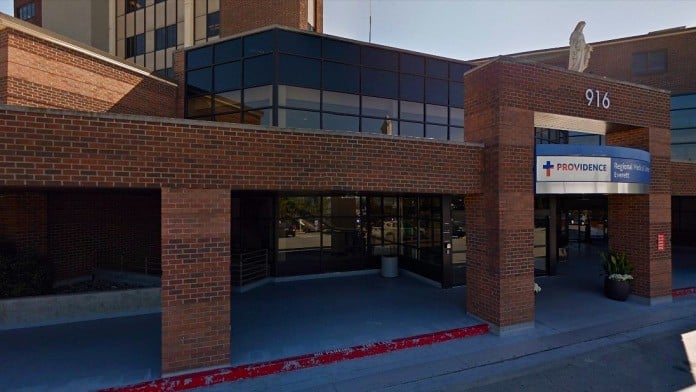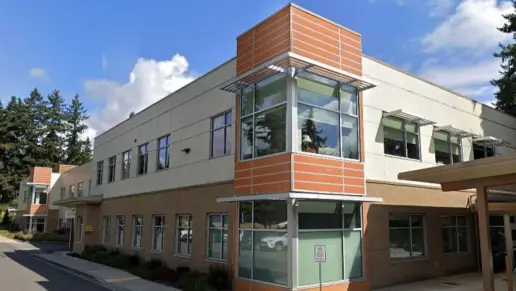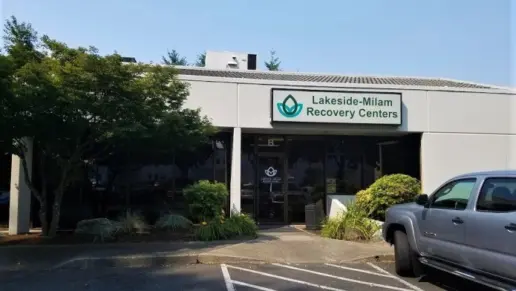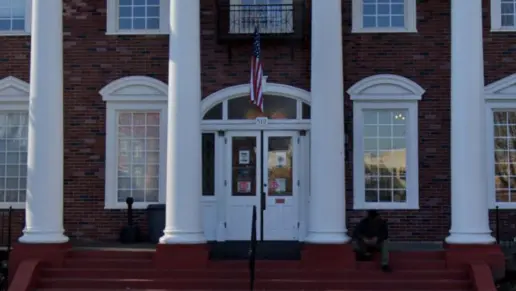I hope I never have the need to return to this place, the staff is lazy and doesn't go out of their way to provide patients with good service, nurses are rarely available to help patients; It is sad to see the lack of love for the work they do. If your goal is to be sober, I ...
About Providence Regional Medical Center Everett
Providence Regional Medical Center Everett offers substance use disorder treatment and recovery services for co-occurring mental health disorders. The facility is on Pacific Avenue in Everett, Washington. They approach recovery through physical, spiritual, emotional and mental health care and their mission is Biblically based.
They offer inpatient detox and a residential treatment program as well as outpatient treatment. They take most major insurance plans but If you don’t have insurance then they have financial assistance programs and provide low cost and even free care for eligible clients.
You’ll start your treatment with an assessment to determine the most appropriate treatment plan. If detoxification is necessary then you’ll go to the inpatient detox program first. Detox is the process of ridding your body of the substances you’ve been using. During detox, you break the physical dependency you have on drugs or alcohol. That’s only the first step because breaking the psychological and emotional addiction is also necessary.
If you own a local business and have employees with addiction issues then you can partner with the center to provide substance use care through employee assistance programs (EAP). The facility also does legal evaluations. Legal evaluations are assessments that put a person’s substance use into the context of a legal situation such as a workplace injury or accident. They also provide monthly monitoring.
Since this facility is a hospital, it’s easy to integrate medical treatment with substance use treatment. Sometimes people with substance use issues contract diseases such as hepatitis C or HIV. They can help you get the treatment you need to address all of your health concerns.
After detox, you may decide to stay in an inpatient program but they also have an intensive outpatient program (IOP). The IOP is an eight week program that meets three times per week for three hours each time. The IOP includes treatment from chemical dependency counselors, spiritual care providers, and nutritionists.
The facility also has outpatient medication assisted treatment (MAT) with Suboxone. Suboxone is used to wean clients off of opioid use. The treatment at this center is comprehensive with multiple programs offered to meet your substance use and mental health needs.
Latest Reviews
Rehab Score
Gallery

Location
Accepted Insurance


Other Forms of Payment
Private insurance refers to any kind of healthcare coverage that isn't from the state or federal government. This includes individual and family plans offered by an employer or purchased from the Insurance Marketplace. Every plan will have different requirements and out of pocket costs so be sure to get the full details before you start treatment.
Self-pay involves paying for treatment out of your own pocket. You can use savings or credit, get a personal loan, or receive help from family and friends to fund your treatment. If you don't have insurance or your insurance plan doesn't cover a specific program, self-pay can help ensure you still get the care you need.
Financial aid can take many forms. Centers may have grants or scholarships available to clients who meet eligibility requirements. Programs that receive SAMHSA grants may have financial aid available for those who need treatment as well. Grants and scholarships can help you pai for treatment without having to repay.
Sliding scale payments are based on a client's income and family size. The goal is to make treatment affordable to everyone. By taking these factors into account, addiction recovery care providers help ensure that your treatment does not become a financial burden to you or your family, eliminating one barrier to care.
Medicare is a federal program that provides health insurance for those 65 and older. It also serves people under 65 with chronic and disabling health challenges. To use Medicare for addiction treatment you need to find a program that accepts Medicare and is in network with your plan. Out of pocket costs and preauthorization requirements vary, so always check with your provider.
Medicaid is a state based program that helps lower-income individuals and families pay for healthcare. Medicaid covers addiction treatment so those enrolled can use their coverage to pay for rehab. When a program accepts Medicaid the client often pays very little or nothing out of their own pocket.
Military members, veterans, and eligible dependents have access to specific insurance programs that help them get the care they need. TRICARE and VA insurance can help you access low cost or no cost addiction and mental health treatment. Programs that accept military insurance often have targeted treatment focused on the unique challenges military members, veterans, and their families face.
Addiction Treatments
Levels of Care
Treatments
The goal of treatment for alcoholism is abstinence. Those with poor social support, poor motivation, or psychiatric disorders tend to relapse within a few years of treatment. For these people, success is measured by longer periods of abstinence, reduced use of alcohol, better health, and improved social functioning. Recovery and Maintenance are usually based on 12 step programs and AA meetings.
Effective drug rehab in Washington integrates care for the whole person, offering comprehensive solutions to addiction. Treatment methods address mental, physical, and relational aspects of substance abuse.
A combined mental health and substance abuse rehab has the staff and resources available to handle individuals with both mental health and substance abuse issues. It can be challenging to determine where a specific symptom stems from (a mental health issue or an issue related to substance abuse), so mental health and substance abuse professionals are helpful in detangling symptoms and keeping treatment on track.
Opioid rehabs specialize in supporting those recovering from opioid addiction. They treat those suffering from addiction to illegal opioids like heroin, as well as prescription drugs like oxycodone. These centers typically combine both physical as well as mental and emotional support to help stop addiction. Physical support often includes medical detox and subsequent medical support (including medication), and mental support includes in-depth therapy to address the underlying causes of addiction.
Programs


Clinical Services
Group therapy is any therapeutic work that happens in a group (not one-on-one). There are a number of different group therapy modalities, including support groups, experiential therapy, psycho-education, and more. Group therapy involves treatment as well as processing interaction between group members.
Individual therapy sessions for drug and alcohol addiction treatment emphasize the importance of personalized care. Your therapist works with you to understand your unique life experiences and develop effective coping mechanisms to address your underlying issues. This comprehensive approach to recovery is the foundation of drug rehab.
Accreditations

The Joint Commission, formerly known as JCAHO, is a nonprofit organization that accredits rehab organizations and programs. Founded in 1951, the Joint Commision's mission is to improve the quality of patient care and demonstrating the quality of patient care.
Joint Commission Accreditation: Yes
Contact Information
916 Pacific Avenue
Everett, WA 98201










